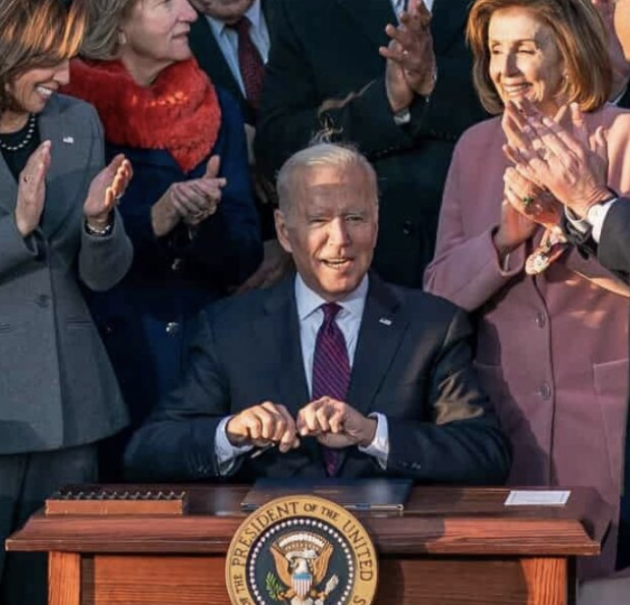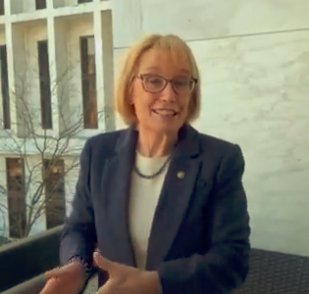Illegal Immigrant Pleads Guilty in Dover Burglary Bust

According to investigators, a young Dover girl hid under her bed, scared for her life, as Jheisson Rizo Suarez broke into her home during a burglary.
Now, Suarez, 39, from Colombia, is facing his second deportation after pleading guilty in U.S. District Court in Concord to one count of reentry after deportation.
Suarez is the third high-profile illegal immigrant arrested in New Hampshire in recent months, including a convicted mass murderer and an alleged human smuggler. It is part of a national crisis that has reached from the U.S. border in Texas and Arizona to New Hampshire’s border with Canada.
Some seven million undocumented migrants have poured into the U.S. since President Joe Biden took office, But Democrats like Sen. Maggie Hassan (D-N.H.), who sits on the Homeland Security Committee, have declined to take any action.
Suarez was arrested in 2021 in connection with the burglary. Police responded to the residence when the girl, alone at the time of the break-in, called 911. According to a statement from the U.S. Attorney’s Office for New Hampshire, she reportedly whispered to the 911 operator that an unknown person or persons had forced their way into her home.
Dover police officers soon had Suarez in custody and discovered it wasn’t his first sojourn to the United States. Suarez had been previously deported in 2013, according to prosecutors.
Suarez, due to be sentenced in January, faces up to 10 years in federal prison. His plea comes weeks after Mexican national Reynaldo Velasco-Velasco, 36, was arrested at the Canadian border for allegedly smuggling people into New Hampshire.
Velasco-Velasco had already been deported from the U.S. in 2011 when U.S. Border Patrol agents caught him this month. According to court records, Velasco-Velasco was illegally leading four other Mexican nationals across the northern border into New Hampshire.
The smuggler allegedly had two cars ready for the people he was bringing through, and Border Patrol agents stopped the cars as they were trying to flee the border region.
And last month, federal agents raided a home construction site in Rye to arrest wanted killer Antonio Jose De Abreu Vidal Filho, 29. According to federal sources, Filho was in the U.S. illegally after overstaying his visa. The former Brazilian military police officer entered the country legally in 2019, even though he was fleeing prosecution for his role in the Curio Massacre.
According to U.S. Immigration and Customs Enforcement, Filho was recently convicted along with three other military state police officers of 11 murders, plus charges of attempted murder and physical and mental torture, for his role in the 2015 massacre in the Curio neighborhood in Fortaleza.
El Globo, a Brazilian news outlet, reported the murders had been retaliation for the death of a Brazilian police officer in Fortaleza. Four of the 11 people murdered were teens under age 18; three were between 18 and 19, according to El Globo.
Filho was ordered to serve a 276-year prison sentence for his part in the massacre.
The arrests come as New Hampshire’s northern border is in crisis. This month, Chief Patrol Agent Robert Garcia of the U.S. Border Patrol’s Swanton Sector — which includes the New Hampshire border with Canada — announced more apprehensions in the past year than in the previous decade.
“Over 6,100 apprehensions from 76 different countries in just 11 months, surpassing the last ten years combined. Swanton Sector Agents are resolute and determined to hold the line across our 295 miles of border in northeastern New York, Vermont, and New Hampshire,” Garcia said via social media.
Gov. Chris Sununu has been raising the alarm for months and keeps getting turned down when he asks President Joe Biden’s administration for help. This month, Biden’s team rejected Sununu’s request that the federal government restore millions of dollars in border security funding New Hampshire received during the Trump administration. The funding, through Operation Stone Garden, gave the state resources to backstop federal border enforcement actions.
Sununu has not gotten any help from New Hampshire’s all-Democratic federal delegation. Sens. Maggie Hassan and Jeanne Shaheen, as well as Reps. Annie Kuster and Chris Pappas have been MIA, according to Sununu.
“I haven’t heard from them. I haven’t heard of any action that they’ve taken with the administration. I haven’t heard of any actual action or results that they have even attempted to bring to the table,” Sununu told NHJournal after the latest Biden rejection.
Asked Monday by NHJournal what they planned to do about the border chaos, Shaheen, Hassan, Kuster, and Pappas all declined to respond.
While prominent elected New Hampshire Democrats have been silent, state party Chairman Ray Buckley spoke for them, reposting a social media message calling Ayotte a “fascist fearmonger” for focusing on the border.
Presumably, Buckley was not hiding under a bed when he posted that message.






 Both Pappas and Kuster’s poll ratings dipped into negative territory in the latest New Hampshire Institute of Politics poll, a first for both of them. Pappas was at 42 percent favorable to 46 percent unfavorable, Kuster landed at 40 percent to 46 percent.
Both Pappas and Kuster’s poll ratings dipped into negative territory in the latest New Hampshire Institute of Politics poll, a first for both of them. Pappas was at 42 percent favorable to 46 percent unfavorable, Kuster landed at 40 percent to 46 percent.





